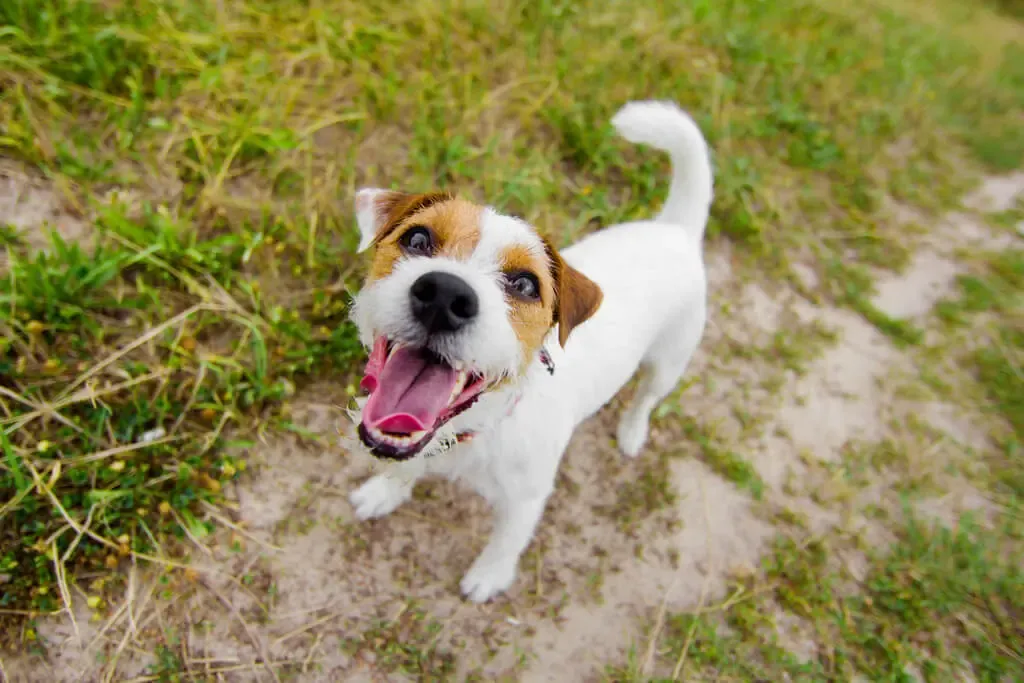Introduction
We all adore our furry companions, but it’s essential to keep an eye on their health too. One common concern that’s been wagging its tail in the dog world is the issue of canine obesity. You might have noticed a few extra pounds on your pup lately, and guess what? You’re not alone.
That’s why we’re here to guide you through some tried-and-true methods to help your four-legged friend shed those extra pounds and keep them off for good. So, let’s dive into “Busting the Bulge: Proven Methods for Helping Your Dog Lose Weight and Keep it Off.”

Understanding Canine Obesity
Alright, let’s get down to the basics. Just like humans, dogs also have a healthy weight range. It depends on their breed, size, and age. A chihuahua won’t have the same ideal weight as a Labrador, right? Canine obesity happens when our furry pals consume more calories than they burn, often due to overfeeding, lack of exercise, and, yes, sometimes those irresistible table scraps.
Signs of Overweight Dogs
Look for signs like a disappearing waistline, difficulty moving around, and not being able to feel their ribs easily. Regularly checking their weight and body condition helps catch any changes early on.
The Role of Nutrition
Just like us, they need a balanced meal. Opt for high-quality, lower-calorie dog food that suits their age and size. Oh, and portion control is the name of the game. Chat with your vet about the best food and portion sizes for your furry friend’s unique needs.
Tailored Exercise Regimen
Now, time to get moving! Regular exercise is paw-sitively crucial for your dog’s health. Walking, playing fetch, and even a dip in the kiddie pool can work wonders. Start slow and gradually increase activity levels. Your dog’s wagging tail will be your best indicator of a good time!
Avoiding Common Pitfalls
Crash diets and extreme restrictions are a no-no. Also, remember that our treats might not be tail-wagging friendly in terms of calories. Be consistent and patient – Rome wasn’t built in a day, and your dog’s health journey is a marathon, not a sprint.
Behavioral and Environmental Factors
Guess what, our pups have feelings too. Stress and boredom can lead to overeating. Keep your dog’s mind sharp with puzzle toys and positive training methods. A happy pup is a healthy pup!
Regular Veterinary Check-ups
Veterinarians are like the doggy doctors who make sure everything’s in tip-top shape. Regular check-ups will help monitor your dog’s weight loss journey and overall health. A little professional advice goes a long way.
Celebrating Success and Maintaining Progress
Woohoo! Celebrate those milestones, but the journey isn’t over. Maintaining a healthy weight requires ongoing effort. Keep those portion sizes in check, and don’t forget their daily dose of fun exercise. Your dog’s tail will be wagging its appreciation!

The Power of Positive Reinforcement
Ok so let’s talk about a crucial aspect of helping your furry buddy lose weight – positive reinforcement. Just like a belly rub or a game of fetch can make your pup’s day, your encouragement can play a massive role in their weight loss journey.
1. Tail-Wagging Encouragement: Think about it – when you’re cheering your pup on, they feel that positive energy! Celebrate every small victory, whether it’s a longer walk, a more energetic play session, or resisting the urge to beg for table scraps. A pat on the head, a kind word, or a treat (make it a healthy one!) can go a long way in motivating your dog to keep up the good work.
2. Interactive Training: Turning weight loss into a fun game can work wonders. Engage your pup in interactive training sessions that challenge their mind and body. Teach them new tricks or skills, and reward them with praise and treats. This mental stimulation not only helps with weight loss but also strengthens your bond.
3. Be Their Workout Buddy: You know how having a workout buddy makes exercise more enjoyable? Well, your pup thinks the same way! Be their partner in fun activities. Whether it’s a game of tag, a brisk jog, or a hike in the great outdoors, your presence and enthusiasm will keep them excited and motivated.
4. Mindful Treat Distribution: Treats are a great way to reinforce positive behavior, but let’s be mindful about it. Opt for low-calorie, healthy treats, and use them sparingly. Reserve treats for special accomplishments or as rewards during training. This approach ensures that treats remain effective motivators without packing on the pounds.
5. Consistency is Key: Just like any fitness journey, consistency is crucial. Stick to your routine, keep the positive vibes flowing, and don’t get discouraged by minor setbacks. Dogs thrive on routine, so your steady encouragement and support will help them stay on track.
*Do you want to know the secrets to dog training in a 6 day course? Find out all you need to understand, train, and care for your pet the way they deserve! To find out more, click the link below!
https://61097kfhodh9ydoqklxjjoezfe.hop.clickbank.net
As a ClickBank Affiliate, I receive a small commission at no cost to you, if you proceed to make a purchase.

Making Lifestyle Adjustments for Long-Term Success
By now, you’re well on your way to helping your furry friend shed those extra pounds and live their best, healthiest life. But guess what? The journey doesn’t end when your pup reaches their goal weight. It’s all about making sustainable lifestyle adjustments to ensure long-term success and well-being.
1. Keep the Momentum Going: You’ve put in the effort to help your pup lose weight, so let’s keep that momentum rolling. Continue with your established routine of regular exercise and portion-controlled meals. Remember, consistency is key to maintaining that healthy weight.
2. Adjust the Diet as Needed: As your pup’s weight changes, their nutritional needs may shift too. It’s a good idea to check in with your veterinarian to reassess their dietary requirements. Your vet can guide you on whether to make any adjustments in terms of portion sizes or types of food.
3. Active Playtime: Playtime isn’t just for puppies – dogs of all ages love to play! Keep engaging in interactive play sessions that challenge their body and mind. This not only helps maintain their weight but also keeps them happy and mentally stimulated.
4. Monitor and Celebrate: Regularly monitor your pup’s weight and body condition. This helps you catch any changes early on and make necessary adjustments. Celebrate the milestones and achievements, whether it’s maintaining their weight or learning a new trick. Your positive reinforcement keeps them motivated.
5. Preventing Boredom: A bored pup might resort to emotional eating. Keep them mentally engaged with puzzle toys, new activities, and social interactions. A stimulated dog is less likely to overeat out of boredom.
6. Stay Attuned to Health Signals: Pay attention to your pup’s overall health. If you notice any unusual changes in appetite, energy levels, or behavior, consult your veterinarian. Catching potential health issues early can help prevent weight gain and ensure your pup’s well-being.
Navigating Setbacks with Resilience
As you continue on this journey to help your furry friend achieve and maintain a healthy weight, it’s important to remember that setbacks can happen. Just like us, dogs can face challenges along the way. But fear not! With a bit of resilience and a whole lot of love, you and your pup can overcome these bumps in the road.
1. Re-evaluate and Adjust: If your pup experiences a weight plateau or a slight gain, it’s time to re-evaluate. Consult your veterinarian to determine if any adjustments are needed in their diet, exercise routine, or overall plan. A professional’s guidance can help you stay on track.
2. Be Patient: Patience truly is a virtue in this process. Just like it takes time for humans to reach their health goals, it takes time for dogs too. Stick to the plan, stay patient, and trust that your efforts will pay off in the long run.
3. Avoid Blame: Remember, weight management is a joint effort. If your pup faces setbacks, it’s not about placing blame. Instead, focus on finding solutions together. It’s a team effort, and your unwavering support makes all the difference.
4. Celebrate Small Wins: Even during setbacks, there are likely small victories along the way. Maybe your pup learned a new trick, or perhaps they’ve been consistently enjoying their exercise routine. Celebrate these wins – they contribute to your dog’s overall well-being.
6. Seek Support: Don’t hesitate to lean on your support system. Connect with other pet owners who might be on a similar journey. Sharing experiences, advice, and encouragement can be incredibly uplifting.

Conclusion
Remember, a setback is just a temporary detour on your pup’s health journey. With your love, determination, and the strategies you’ve learned, you have all the tools you need to navigate these challenges.
Embrace resilience, stay patient, and continue showering your pup with the care they deserve. Every setback you overcome brings you closer to the ultimate goal – a happier, healthier life for your furry friend.
So, stay strong and keep those tails wagging!




